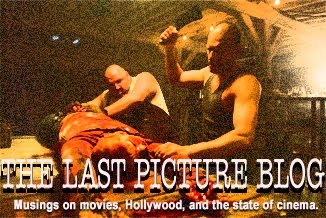Like everything director Takashi Miike does, Imprint leaves an impression. Originally created for the Showtime series Masters of Horror, Imprint never saw the light of day on that network due to it being too disturbing. Mick Garris, the series' creator had asked Miike to tone it down before Showtime saw it. I like Garris, and when he is asking a director to tone something down, there is probably a reason. I never felt, however, that the Masters of Horror series was all that controversial in nature, so I took the stories of Imprint's fright factor with a grain of salt.
After watching it, I can understand why Showtime wouldn't air it. If I had to put my finger on it, I would say it is the copious amounts of aborted fetuses that had something to do with, and not the torture scene (though that was pretty chilling).
Watching Imprint is kind of like watching a nightmare unfold. The acting is sometimes over the top. The visual aspects of the story seem off-kilter (one of the main complaints about it that I've heard from people is that they can't tell what time period the story is supposed to be set in -- it looks like it is older, current and slightly in the future all at once). And the narrative is erratic in places. It works as a disturbing tale, and its conclusion is open to interpretation, but I must say I find Audition to be more cohesive and enjoyable.
Miike is a director who is no stranger to controversy. People have called his work overly violent, but I think it is something far more powerful than that. His use of violence is almost poetic. He doesn't use the hack-and-slash route many American directors go for. He is more subtle. Because of that, he is more effective. People can watch Jason Voorhees cleave someone with a machete and say, "Damn, that was bad ass." But make that same person watch the torture scene from Imprint were burning incense is applied to a woman's armpits and you can physically feel that work. There is far less blood involved, and incense is no machete, but the effect on the viewer is far stronger than most things that come out of America. This is, however, not a cultural difference. It is a difference of direction and artistic vision. Miike wants every scene to have a specific impact. Your standard director just wants the blood to flow.
Imprint may have been too much for Showtime's perceived audience (though I doubt the network would have received as many complaints as it thinks), but it can be seen on DVD and through Netflix streaming. It may not be a Christmas movie, but it sure as hell beats the NBA or whatever other shit is playing.
It Has Happened
-
I've done it. I've sinned. Joined the ranks of the zombies. Not only did I
download Tik Tok, but now I've also posted my first video. It's a
self-promot...
3 months ago









